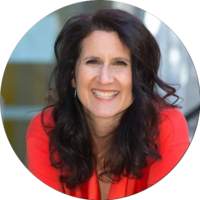“At this point in my life, I’m more interested in the depth of my career than its height.” This comment from my friend and mentor, Shoshanna Cogan, stopped me in my tracks. Depth, not height.
As a highly accomplished and talented international trainer, Shoshanna has touched thousands of lives, in countless countries. To external eyes, she is building a career of impressive stature but, rather than getting caught up in the approval or judgment of others, she is turning her own eyes inward to find what intentionally brings her meaning in her vocation.
In this era of constant self-promotion and crushing self-comparison—Twitter, self-published books, LinkedIn profiles, Huffington post blogs, podcasts—I see many clients getting neck strain from turning their eyes upward to gauge how high their career is climbing. What would happen if instead we turned inward to ask, “What really, truly, and deeply brings me professional meaning?”
As defined by Roy Baumeister and Kathleen Vohs and found in Baumeister’s 1991 book, Meanings of Life, the quest for meaning requires:
1. Purpose: Present events draw meaning from their connection to future outcome—objective goals and subjective fulfillment
2. Values, which can justify certain courses of action
3. Efficacy, the belief that one can make a difference
4. Self-worth, reasons for believing that one is a good and worthy person—which results from immersion in our natural talents or what we excel at.
By using these characteristics as a “litmus test,” we can make more meaningful depth career decisions rather than grasping for hollow heights.
As a society, we are increasingly searching for this meaning, which will promote our long-term flourishing; however, in the short term, research indicates that individuals experience high levels of anxiety as they look up and around to figure out their purpose. To mitigate this anxiety-producing career “neck strain,” try these Career Litmus Test Questions:
1. If someone was objectively looking at my action, would they say it was aligned to my future impact aspirations?
2. What is the deeper value to this action, and would I be proud to tell someone not what I am doing but why I am doing this?
3. Does this action play to my internal strengths and external competencies, or am I “should”-ing on myself?
4. How will I feel about my self-worth, no matter what results from this career decision?
For a more expansive awareness of career depth, imagine it is 20 years in the future and you are being honored for the impact of your work. Write the speech you would want someone to make as they introduce you. Then read it out loud to notice what really, truly, and deeply resonates with you.
Last week, I spoke to Shoshanna about this article and asked her what she was up to next—which turned out to be a course she was facilitating in Thailand and a yearlong leadership program she was running in New York. Ironically, the more she mindfully focuses on work that speaks to her values, purpose, and self-worth, the more her career has organically grown.
As I turned my own gaze inward, the message was clear: When we value depth over height, authentic professional meaning soars both far and wide.



